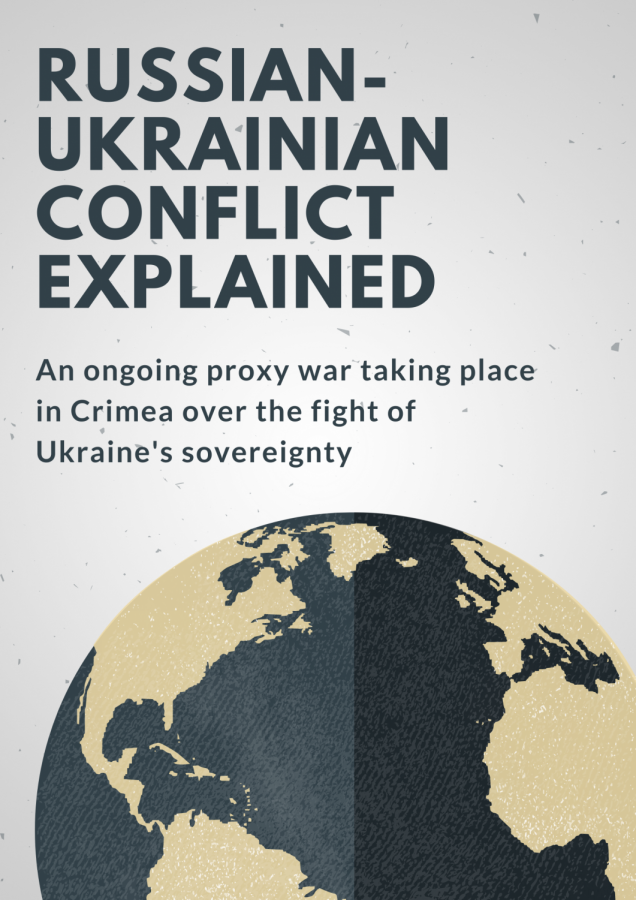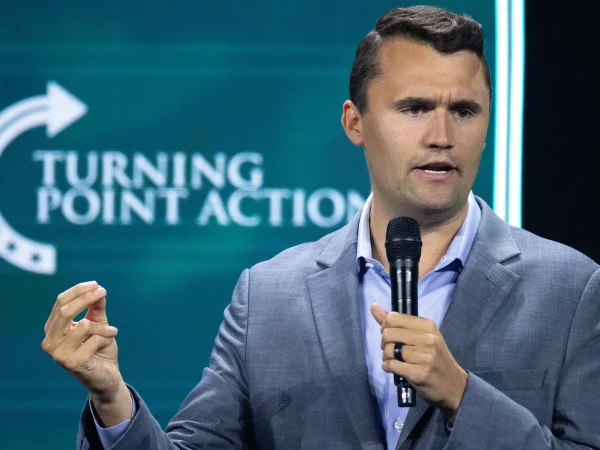The Russian- Ukrainian conflict explained
Over the past three decades, international tension has complicated relations between Russia and Ukraine. In order to understand this conflict to the fullest extent, it is important to acknowledge the history between the two states.
During World War II, after successfully defending themselves in the battle of Stalingrad, the USSR launched a counteroffensive westward, resulting in the Soviet control of Ukraine.
After this, the Soviets maintained control of Ukraine and other Eastern European countries for over 60 years. Although, this geopolitical standing changed as the USSR faced a rapid dissolution.
After a series of internal and external conflicts within Russia, the Soviet bloc collapsed—ending the Cold War. An immediate outcome of this was the independence of what is now known as “Post- Soviet States,” thus the origins of Ukrainain independence.
In 1991, Ukraine officially declared its independence from the Soviet Union, proclaiming itself to be a “neutral state.” According to the North Atlantic Treaty Organization (NATO), following its independence Ukraine immediately joined the Partnership for Peace program in 1994, under the direction of NATO.
During the Cold War the former USSR adapted a large nuclear arsenal, and strategically placed it into what was then the Ukrainian Soviet Socialist Republic. However, after Ukraine’s independence they maintained control of these powerful weapons. In 1995 Ukraine gave Russia their nuclear weapons back in return for acknowledging and respecting Ukraines identity.
Additionally, in 2000 Russia signed a deal with the European Union to reaffirm Ukraine’s independence. This specifically granted Ukraine the freedom to assemble treaties with any country of their choice.
Because of Ukraine’s large geographical size, along with its conflicting political views, it’s important to acknowledge the role that cross cultural relations has had in this conflict. In the west, the people of Ukraine predominantly speak Ukrainian, whereas in the east the customary language spoken is Russian.
Additionally, in eastern Ukraine, the citizens have a stronger tie to their former Soviet identities. This is a direct cultural implication of the integral standing Ukraine had in the former USSR. However, because of this, political conflicts with regards to whether Ukraine should remain under Soviet control has dominated social discussions.
In order to understand this issue to a profound extent, it is imperative to know Russian motives behind the sought after sovereignty of Ukraine. While there are various factors to this, it is widely known that Russia has a significant reliance on Ukrainian natural resources and, more specifically, gas.
According to the Atlantic Council, a nonpartisan organization that galvanizes US global leadership and engagement, the Russian economy is not diversified, in other words, they solely rely on the global price of oil.
However, in 2014 Russia underwent a “financial crisis” stemming from the fall of the price of oil, and economic sanctions on petroleum by 50 percent, and economic sanctions imposed against them after the annexation of Crimea.
“If you are able to dominate Crimea, you are also able to control the Black Sea—which insinuates that whomever has full authority there also obtains an economic advantage,” University of Minnesota contributor Dr. Spencer Holmes said.
With this being said, it is arguable that deliberate motive can be detected for the means of economic development.
Now that complex historical context has been synthesized, it is essential to examine recent political events and the influential role they have had on this evolving crisis.
“A concurrent issue in the Ukrainian government is the abundance of corruption. So unfortunately, resources in Ukraine aren’t utilized very efficiently. The Ukrainian people know that the politicians are either in the pocket of the Russian, essentially doing things in favor of Russia, while disregarding what’s good for the people of Ukraine,” Orono AP World History teacher Michelle Naylor said.
In 2004, Russia took initiative by meddling in the Ukrainian election. This event, later called the “Orange Revolution,” was a series of protests enacted by anti-Russian citizens, in response to the fraudulent election of Viktor Yanukovich.
According to the National Democratic Institute, the election was annulled after massive corruption, voter intimidation, and voter fraud. Ukraines supreme court ordered a recount, which was a victory for Viktor Yushchenko.
Chaos continued to prevail in 2014 after the pro-Russian president suspended a long negotiated association agreement with the European Union, instead choosing to enter a Russia focused Eurasian Economic Union. This led to mass protesting in wake of this controversial economic move, ultimately causing president Yanukovich to flee the country.
In the midst of this unrest, Russia sent military personnel to Crimea.
Crimea, which is otherwise known as the Ukrainian peninsula, is strategically located between Russia and Ukraine, dividing the Sea of Azov and the Black Sea. However, in 2014, in response to the success of the Ukrainian revolution, Russia annexed Crimea—which in definition is the act of obtaining more territory.
The United Nations General Assembly rejected the vote after developing a legal argument against this act.
According to The Brookings Institution, a nonprofit public policy organization, the annexation of Crimea was illegal and illegitimate because of the various international agreements in which Russia pledged to uphold the integrity and sovereignty of Ukraine.
“After the annexation of Crimea, Russia has been threatening to invade Ukraine physically for years. From the Russian viewpoint, they are occupying territory that is loyal to Russia. While the pro-western majority group of Ukrainians would like to defeat Russia in its conquests, doing so risks the possibility of an all out war with Russia,” Orono Political Science teacher David Herring said.
As of recently, tensions between Russia and Ukraine have been on the rise, in short due to a dispute over the Kerch strait. Despite an agreement between the two states in 2003, allowing both countries to use the strait, Russia has obtained and enforced full control.
In early March, the United States Defense Department, under the Biden administration, announced an additional $125 million in military aid to Ukraine. This was imposed with the intent to help preserve Ukraines borders, territorial integrity, and interoperability with NATO.
This act, of which significantly supports Ukrainian militant efforts, undeniably establishes the United States side on this Intractable conflict. While for most individuals with adopted western ideologies, the ethics regarding this issue strongly favor Ukraine. However, there has been an ongoing debate as to whether the government should take action to mediate this issue.
“We should stand by Ukraine by imposing sanctions on Russia, and overall hurting them economically. However, we can not afford an all out war, and should not irresponsibly partake in an unnecessary war,” former Company Commander for the Israeli army and current Chief Operating Officer of a target control system Barak Dar said.
According to various accounts, the United States and other world powers and organizations are playing “peacemakers” in attempts to avoid a total war.
“Pro Western independent Ukraine has a relationship with NATO and has expressed interest in joining, however, the United States and other NATO members risk escalating tensions if they were to admit Ukraine,” Herring said.
However others theorize economic relations may mediate potential warfare. This conjecture is widely known as the “Economic- Codependency Theory.”
“While Europe heavily relies on Russia’s energy sector, many Russian industries continue to rely on Ukrainian imports and assistance. Despite the intensifying relations between Russia and Ukraine, both countries’ economic states depend on one another’s economic commerce,” Baylor University political science student Lilly Robbins said.
Regardless of opposing views concerning how the U.S. should exert itself in this conflict in the following years, it is important to recognize the greater implications these tensions will have on global relations and tranquility. As a citizen of the United States it is your duty to remain educated and active in global events, in order to express your freedom of speech and advocate for your beliefs.





















































